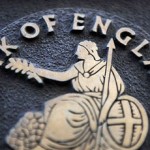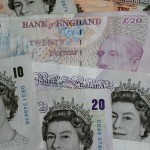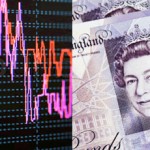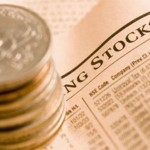British pound plunged to fresh 31-year lows

The British pound plunged to fresh 31-year lows on Wednesday, swamped by continued fears over the U.K. leadership vacuum and the country’s potential exit from the European Union (EU).
The pound tumbled as low as $1.2796 during Asia trade on Wednesday, it’s lowest since 1985, after ending Tuesday’s trade around $1.2960. The U.K. currency later recovered to trade around $1.2881 at 12:27 p.m. SIN/HK.
Analysts were concerned that the continued political uncertainty will hurt capital inflows and spur companies to delay investments, potentially tipping the economy into a recession.
The Bank of England (BOE) had begun taking preemptive steps to protect the British economy in the wake of June 23 U.K. referendum vote to leave the European Union (EU).
On Tuesday, BOE Governor Mark Carney sent a clear message to Britain’s cautious bankers: They needed to start lending more money. The central bank cut the amount of capital it required banks to hold in reserve, which freed up an extra 150 billion pounds ($196 billion) for lending.
Carney had previously signaled more monetary easing would likely be put in place in the near term.
But that wasn’t assuaging the market much, analysts said.
“As Carney as put it himself, there isn’t so much he can do. Monetary policy, which the Bank of England is in charge of, cannot fix structural issues. It’s very apparent with Brexit that investors will stay away from the U.K. because of the certainty,” Axel Merk, chief investment officer at Merk Investments, told CNBC’s “Rundown” on Wednesday.
He noted that not only has the U.K. yet to invoke Article 50 of the Lisbon Treaty, which will formally start negotiations for an exit from the EU, it wasn’t clear who the country’s next leader would be. The ruling Conservative party is in the midst of finding a successor to Prime Minister David Cameron, who resigned after his “remain” camp lost the referendum.
“You’re not going to make a big investment decision if you don’t have that sort of certainty,” Merk said. “The only thing the Bank of England can do obviously is provide the ability of banks to lend, but if there are no takers, it doesn’t help all that much.”
Many analysts have said they expect sterling to keep retreating in the wake of the Brexit vote.
“I don’t think the markets are in any way, shape or form done with the downside in the sterling,” Ray Attrill, co-head of foreign-exchange strategy at National Australia Bank, told CNBC’s “Street Signs” on Wednesday.
“We still think that $1.20 is a not unreasonable target given the size of effective like terms of trade shock,” he said. “It’s like Australia running out of gas or Saudi Arabia running out of oil, particularly in terms of how the financial services sector is potentially going to be impacted.”
Another burn to investor faith in sterling came from three British real estate funds — Standard Life, Aviva and M&G Investments — halting dealing in their U.K. property funds, leaving investors and fund managers worried about consequences on the broader sector. In recent years, foreign investors had snapped up property in Britain, particularly in London, partly due to expectations that the country’s politics and its currency would remain stable.
Foreign investors faced a drop in the value of those investments in their home-currency terms amid the pound’s plunge.
Goldman Sachs expected another leg of pound weakness, or “ample downside,” pointing toward the BOE’s monetary policy meeting next week, where it anticipated further guidance on likely easing measures, which may include reinstating quantitative easing (QE) asset purchases.
“This will be the catalyst for a further downward move in sterling,” Goldman said in a note Wednesday.
“The market is not discounting the easing effect of asset purchases, the persistence of easier monetary conditions in the U.K., and the U.S.-U.K. monetary policy divergence that we expect nearly as much as it should,” it said. U.S. interest rates remain in positive territory and many analysts still expected the Federal Reserve might increase interest rates at least one time this year.
Source: CNBC





























